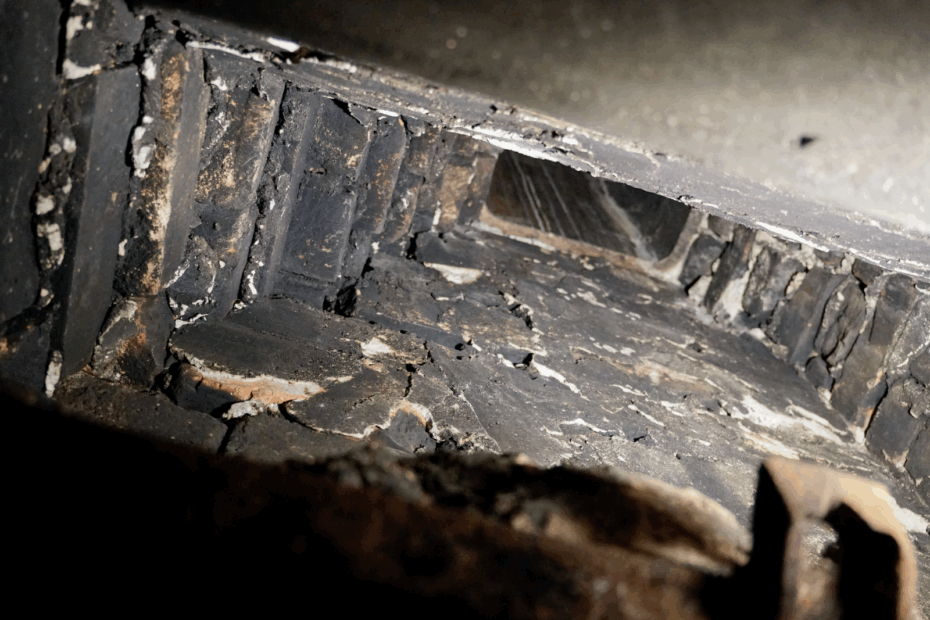As summer ends and winter approaches, many families are making plans for family gatherings and cozy nights by the fire. The snapping and crackling flames of a warm fireplace create a perfect ambiance for enjoying hot chocolate, gingerbread cookies, and other festive delights. However, the remnants of last season’s fires could be causing a common problem: a smelly fireplace. This issue often becomes more apparent during hot, humid summers, when decaying organic matter and moisture combine to create a foul odor.
Is a smelly fireplace causing a stink in your home? Here are several possible reasons:
Sooty Buildup
The most common cause of a smelly fireplace is creosote, a flammable substance that builds up inside the chimney. It’s a residue of condensed wood smoke and can smell like tar or asphalt, especially on a hot day. Soot also contributes to this odor.
Critters
Birds, raccoons, squirrels, and pests can find their way into your chimney through a damaged or missing chimney cap, cracked crown, and gaps in the masonry. They may build nests, leave droppings, or even get trapped and die inside. The combination of these can result in putrid odors.
Leaves and Other Debris
Just like critters, leaves, twigs, and other organic matter can fall into the chimney or clog vents. As this material decays, it can produce an awful smell similar to that of a compost pile, especially when it becomes wet.
Moisture
Moisture intrusion is a major culprit for smelly fireplaces. Rain can also leak into the chimney through cracks in the crown, a faulty chimney cap, damaged flashing, or even an open damper. This water can mix with creosote and other debris, creating a musty, moldy odor.
Negative Air Pressure
Newer homes are often sealed tightly to improve energy efficiency. One caveat of this is negative air pressure. It occurs when exhaust fans, dryers, and furnaces suck air out of the house. This pressure pulls air down the chimney, bringing any lingering smells from the fireplace and chimney into the living space.
Fireplace Ashes
After a fire, a small amount of ash and charred wood can remain in the fireplace. While it might seem harmless, these remnants can absorb odors and release them back into the room. Additionally, any lingering odors from a previous fire can also persist.
How to Prevent a Smelly Fireplace
A clean chimney not only helps prevent smelly fireplaces but also reduces fire and health hazards while improving its efficiency.
- Schedule professional chimney cleaning and inspections every year.
- Install a full-width chimney cap.
- Burn seasoned wood.
- Close the damper after using the fireplace.

Let Us Clean Your Smelly Fireplace – Breathe Happy!
Don’t let a smelly fireplace spoil the ambiance. Our CSIA-certified chimney sweeps will thoroughly inspect and clean your chimney and fireplace, removing sooty buildup, decaying organic matter, animal droppings, and other debris that can cause foul odors in your fireplace and home. Call Masters today and enjoy better indoor air quality. We proudly serve residents from Houston to Oklahoma City, including Dallas, Fort Worth, and The Woodlands.
